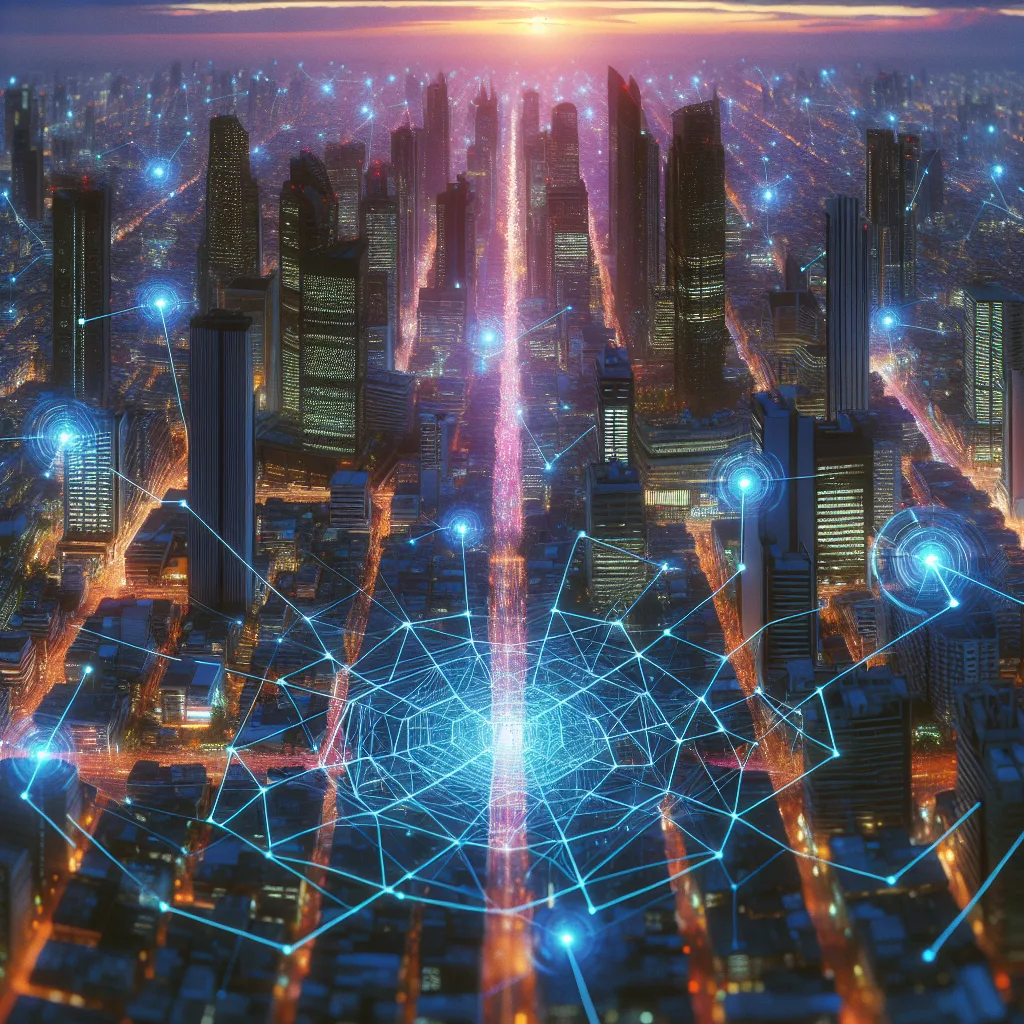Exploring the real possibility of AI crime prevention and what it means for our daily lives.
I was driving home the other day, maybe a little bit over the speed limit, and a thought popped into my head. What if a machine, not a person, was watching? What if it instantly knew I was going 7 miles per hour too fast and a ticket just… appeared in my inbox? It’s a slightly unsettling thought, but it also got me thinking about a much bigger question. Could this kind of technology lead to a future of AI crime prevention, where even the smallest offenses are a thing of the past?
It sounds like something straight out of a sci-fi movie, but the building blocks are already here. We live in a world of ever-present cameras, from our doorbells to the traffic lights on the corner. Our identities are increasingly digital, tied to our phones, our faces, and our online accounts. It’s not a huge leap to imagine an AI network connecting all these dots.
The Promise of AI Crime Prevention: More Than Just Tickets
Let’s be honest, we all see minor rules being broken every single day. Someone doesn’t pay for a soda at a self-checkout, a car rolls through a stop sign, someone decides the speed limit is just a friendly suggestion. These aren’t major heists, but they add up, creating a sense of disorder.
Now, imagine an AI-powered system that sees everything.
* In retail: An AI monitoring cameras could instantly detect when an item is pocketed without being scanned. No need for a security guard to notice; the system flags it immediately.
* On the roads: The system I imagined earlier. A network that knows the speed limit on every single road and can identify any car exceeding it. Tickets are issued automatically and impartially. No more talking your way out of a warning.
* In public spaces: Think about identity. In some places, like Dubai, they have already rolled out facial recognition payment systems, linking your face directly to your finances. The same tech could theoretically identify anyone in a public space, making it incredibly difficult to remain anonymous, especially if you’re trying to cause trouble.
The idea is that if the chance of getting caught for these “small” crimes becomes nearly 100%, the incentive to commit them disappears. The streets would be safer, stores would have less theft, and our daily environments would become more orderly.
How AI Surveillance and Crime Prevention Might Actually Work
This isn’t just about sticking more cameras everywhere. True AI crime prevention would rely on a massive, interconnected network. It would be an AI that doesn’t just see, it understands. It analyzes patterns in real-time, learning what “normal” looks like in a specific area.
When it detects an anomaly—a car swerving erratically, a person loitering in a strange place at a strange time, a sudden crowd gathering—it could flag it for human review or even predict that a crime is about to happen. This concept, often called “predictive policing,” is one of the most intriguing and controversial aspects of using AI in law enforcement. The goal is to stop crime before it even starts.
But this kind of power raises some huge questions.
The Double-Edged Sword: Privacy and Bias
As appealing as a crime-free world sounds, we have to talk about the trade-offs. Handing over this much oversight to an AI system has some serious potential downsides.
- Total Loss of Privacy: A world with no crime might also be a world with no privacy. Do we want to live under the gaze of a system that logs our every move, every purchase, every minor mistake?
- Algorithmic Bias: AI is only as good as the data it’s trained on. As organizations like the Brookings Institution point out, if historical data shows that certain neighborhoods are policed more heavily, an AI might learn that bias and unfairly target those communities, creating a feedback loop of inequality.
- What about big crimes? Can an AI really understand the complex human motivations behind major crimes? Or would it just be good at stopping petty theft while missing the bigger picture?
- The Margin of Error: What if the AI gets it wrong? A glitch in the system could wrongly accuse someone, issuing a fine or, even worse, flagging them as a potential criminal. Who is held accountable when the algorithm makes a mistake?
Crimes will probably always exist in some form. Human ingenuity is limitless, and that applies to finding ways around systems, too. But a future with widespread AI crime prevention could fundamentally change our relationship with law and order. Petty crime might become a memory. The question we have to ask ourselves is, what are we willing to give up to get there?
